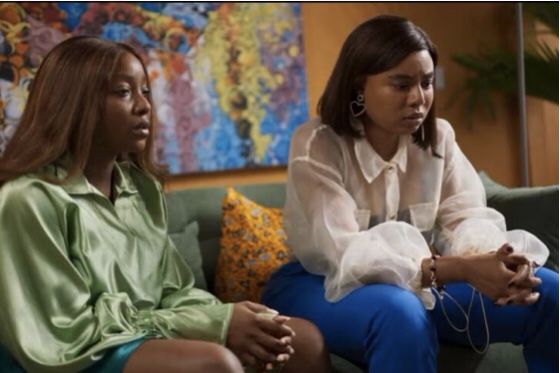Nollywood – the Nigerian movie industry – was described as a small screen cinema involving amateurs who produced low budget trashy videos with predictable storylines.
But in the intervening decade it’s been transformed into a multi-million dollar industry with rising international interest.
For my PhD I interrogated this transformation as a gentrification of the industry due to the apparent displacement of popular viewers who previously formed its audience base.
The growth of Nollywood is phenomenal considering its being largely unsupported by the government and grown by private investors. The industry has become a showcase for resilience, tenacity and creative prowess. An example of how, despite limited resources, Nigerians have successfully exported aspects of Africa’s cultural history and heritage to the world.
Across Africa, Nigerian entertainment, especially music and film, enjoy a constantly rising patronage. Nollywood is undoubtedly the most popular film industry on the continent. And, with the availability of subscription video-on-demand platforms, Nollywood films are reaching subscribers across the world.
So a Nollywood venture like the new Netflix original four-part mini-series Blood Sisters is able to conquer global markets and deserves to.
– Advertisement –
In my view, Blood Sisters sets a new pace for the industry. Its plot line is untypical of popular Nollywood in a number of ways. Firstly, it chooses thrill and suspense over comical romance. Secondly, it pursues a new and growing representation of friendship between women.
And lastly, Blood Sisters comments on the struggle against gender and intimate partner violence in a unique way. Cases of deaths due to domestic violence are surging in Nigeria. The mini-series contributes to conversations around changing the narrative.
Stereotypes Under The Microscope
Blood Sisters follows the lives of two best friends. Despite differences in ethnicity and culture, Kemi Sanya and Sarah Duru, build a friendship which becomes bound by the murder of Kola Ademola, Sarah’s fiancé.
The plot eschews a number of stereotypes. These include the evil girlfriend, misguided career woman, bickering and unforgiving trophy wives and pampered daughters versus overworked house girls. Instead, it promotes the supportive girlfriend and women of strong willpower.
Blood Sisters suggests that when women support each other incredible things happen. This echoes a model found in literary works such as Chineze Anyaele’s Ije, Kemi Adetiba’s King of Boys, Bunmi Ajakaiye’s The Smart Money Woman and BiyiBandele’s Half of a Yellow Sun, among others.
The story of a missing abusive fiancé, cherished son, brother and friend with dark secret desires, opens up conversations around mental health and wellness as well as gender issues in Nigeria.
Blood Sisters x-rays the anguish and frustration created by gender preferences and inequality. Male children continue to enjoy preference over the girl-child and the psychological harm this inflicts on them is mirrored in the characters of Femi and Timileyin Ademola. Despite their personal struggles and effort to live up to expectations, Kola overshadows them.
Some stereotypes, however, persist. While Uduak Ademola’sattitude towards her daughter is untypical, we see a very stereotypical portrayal of motherhood in Uchenna Duru and of course the Igbo tribe in Mr Ifeanyi Duru.
Representation of the Nigerian police is equally stereotypical, although the dismissed Inspector Joe offered a ray of hope in the force.
Success Story
Blood Sisters is an excellent first season which leaves audiences asking for more. It has been well received and widely acclaimed.
Typical of EbonyLife Studio production, it is extravagant in many respects. This includes the cast and crew ensemble, costumes, cinematography and overall technical elements.
The mini-series features some of Nollywood’s finest actors. Like many other contemporary Nollywood films, Blood Sisters typifies how much filmmakers and filmmaking in Nigeria have improved since becoming very popular in 1992. This is particularly true in terms of technical elements of filmmaking.
There is yet much to do. But the coming of subscription video on demand platforms serves as a necessary and timely challenge to the industry. Beyond supporting diversity and boosting creativity, it connects filmmakers as well as audiences, bringing Africa to the world, one film at a time.
This new opportunity is leading to a rejuvenation of experimentation with “unconventional” genres. Examples include time-travel adventures like Akay Mason and AbosiOgba’s Day of Destiny, and culturally sensitive and controversial subjects, like Robert Peters’ Voiceless.
Blood Sisters is also unique for being an intense and creatively unified story despite being co-created by two different directors – Biyi Bandele and Kenneth Gyang. Experimental filmmaking is a familiar terrain for both.
Bandele, a poet, novelist, playwright and filmmaker, has often creatively explored themes of oppression, violence, and corruption. This includes his acclaimed high budget adaptation of novelist Chimamanda Adichie’s Half of a Yellow Sun. The story attempts to re-imagine the hushed chaos, pain, suffering and anguish of the Nigerian civil war.
Experimentation makes up a great deal Bandele’s way of capturing, expressing, commenting on, as well as documenting life experiences. He, like Gyang, has continuously created and depicted strong African women undeterred by life’s challenges.
Gyang’s creative abilities stand out in different ways. The award-winning director continues to use every film project to challenge his creative capacity and maximise film for entertainment and education. In Blood Sisters, he continues to display extraordinary skills inspired by great filmmakers.
Indeed for Nollywood – films, filmmakers and filmmaking – the beautiful ones are not yet born.
Ezinne Ezepue, Lecturer, University of Nigeria
Culled from ICIR






Discussion about this post